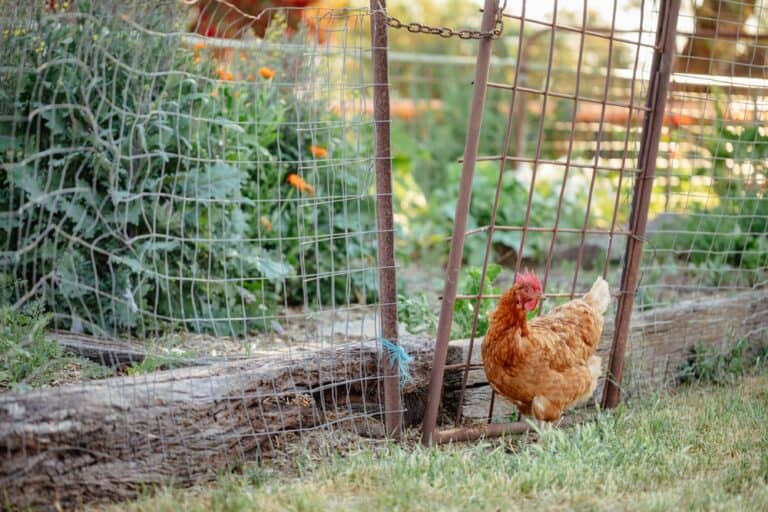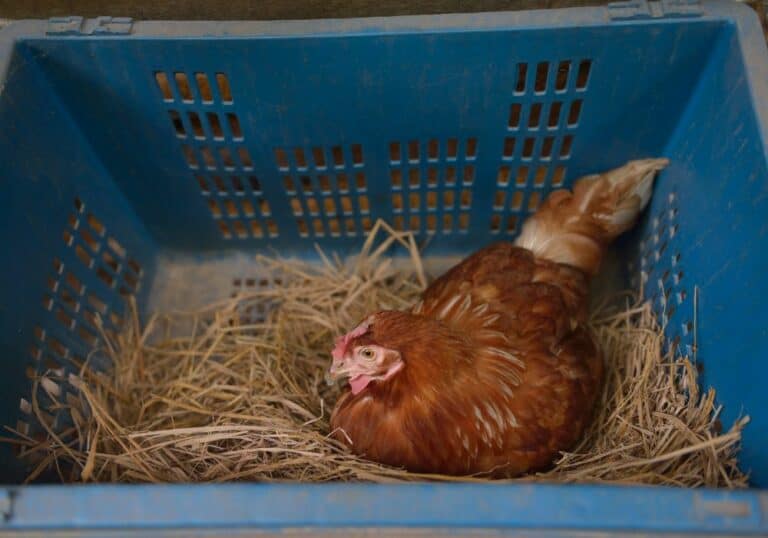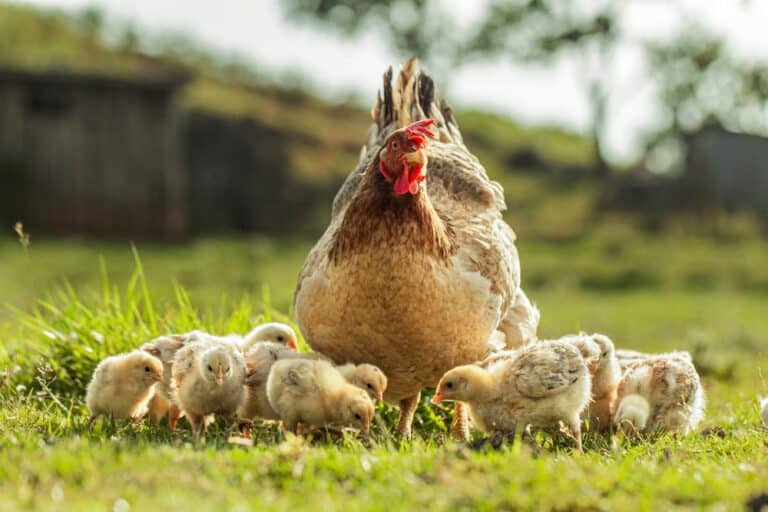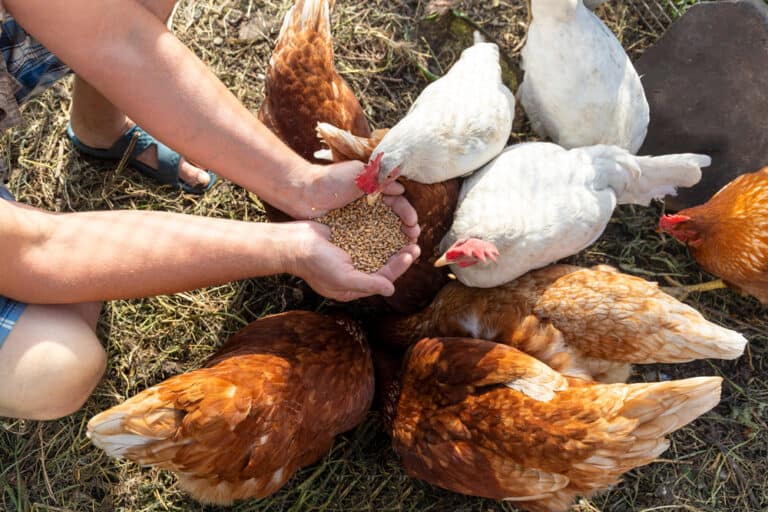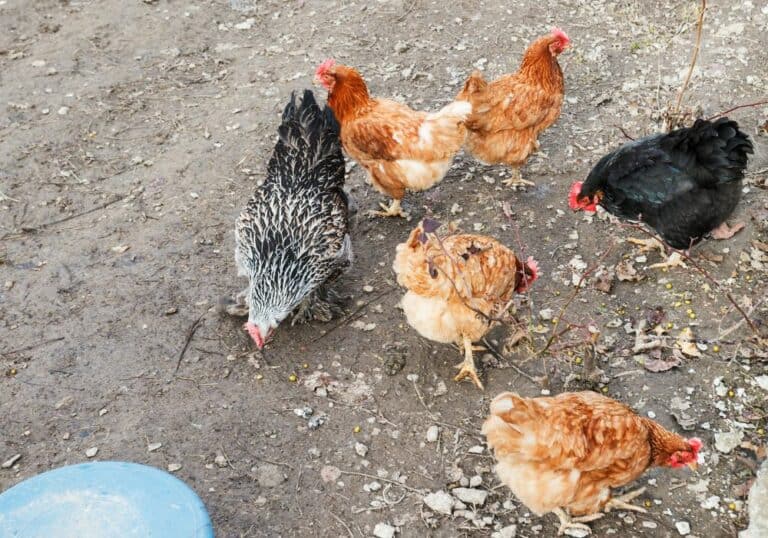Coccidiosis is a nasty infection that can have devastating consequences for any flock. It can make your chickens very unwell and at its worst, can be fatal. Thankfully there are many steps you can take to help your chickens overcome it.
Here we’ll have an overview of coccidiosis along with how to diagnose it. Once we know that, we’ll check out how you can treat the infection and how to prevent it from ever coming back. All you need to do is read on to find out more!
Overview of Coccidiosis in Chickens
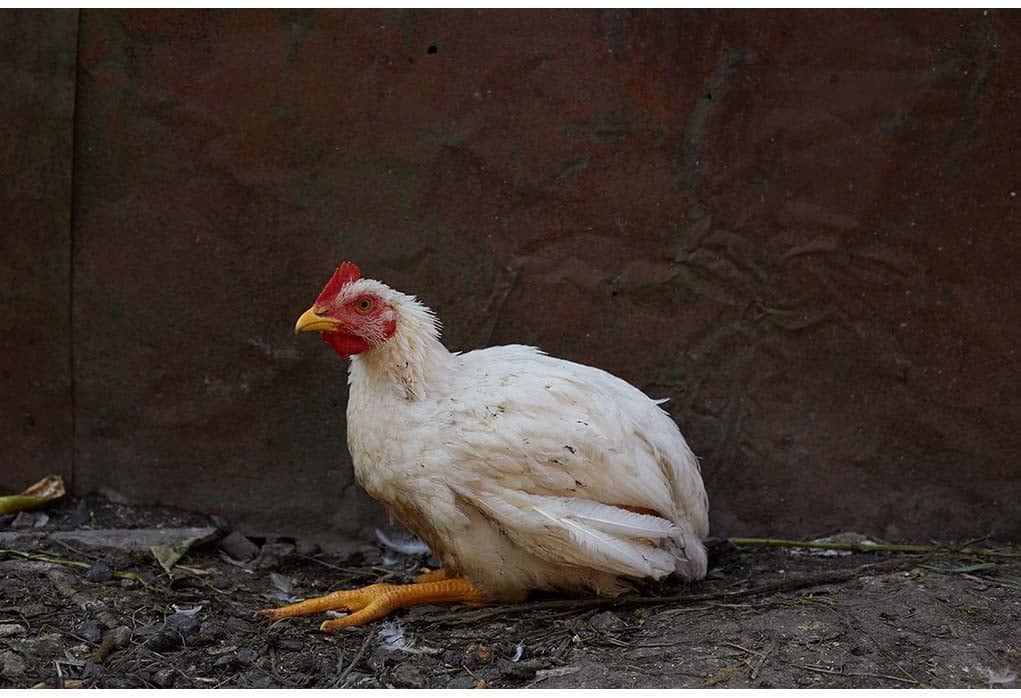
You may well be wondering, what exactly is coccidiosis? The answer is that it’s a parasitic infection that can attack the intestine of chickens. These parasites are called coccidia and they will attach themselves to the intestinal lining.
The big problem is that these parasites will destroy the chicken’s ability to absorb nutrition. While a chicken usually recovers from coccidiosis, it can be fatal. These parasites can easily be passed between chickens and can quickly infect your whole flock.
How to Spot Coccidiosis in Chickens
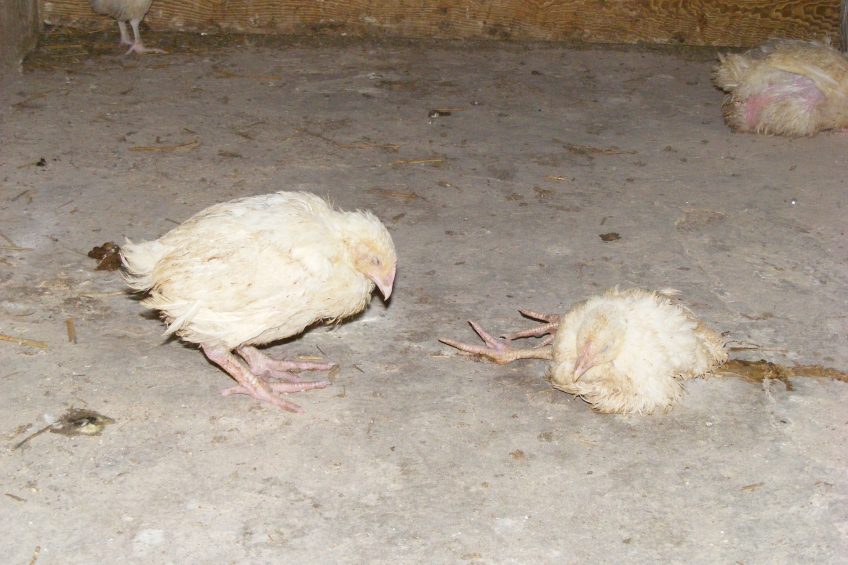
Coccidiosis can cause lesions in the intestines but with this being an internal problem, it can be hard to know that your chicken is unwell. However, there are several signs that may indicate that your chicken is suffering from this infection.
- Blood In Their Poop – This is the clearest sign that something is wrong with your chicken. While blood in their poop isn’t always serious, it can often be a sign that they are poorly, including having coccidiosis.
- Lethargy – If you’ve had your chickens for long enough, then you’ll easily be able to spot any significant changes in behavior. If they have no energy, it can be another sign.
- Diarrhea – There are a few things that can cause diarrhea in chickens, but it could be coccidiosis if combined with some other symptoms.
- Huddling and Ruffled Feathers – When chickens get coccidiosis, they can feel very cold. This can lead to them huddling together to try and get warm. Another thing they do is ruffle (puff out) their feathers which help to trap a thin layer of warm air next to their body.
- Combs and Wattles Turn Pale – Take note of the color of their combs and wattles. When they are unwell, they can go a paler color just as human skin can go paler when we’re unwell.
- Lack of Appetite and Weight Loss – This symptom is unsurprising given that coccidiosis affects the intestines of the chicken. They won’t want to eat and this, combined with the coccidia blocking their nutrition intake, means your chickens can quickly lose weight.
- Stop Eggs Laying – This isn’t exclusive to coccidiosis but when a hen isn’t healthy, she’ll usually slow down egg production or stop it altogether.
It’s important to note that these symptoms are common to other conditions that your chicken may have. Due to this, you shouldn’t automatically jump to a conclusion of coccidiosis. The best method is to take a sample of their poop to a vet, and they’ll be able to test it.
Treatment and Prevention
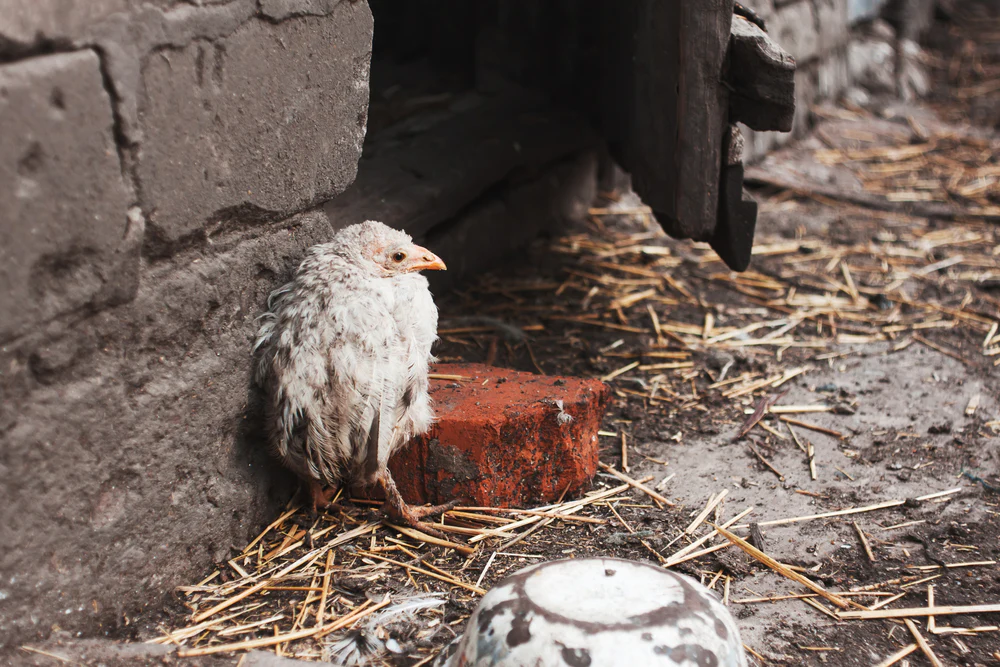
So, your chicken has coccidiosis, what can you do? Thankfully the treatment for it is quite straightforward. The most popular and effective medication they can have is amprolium, which is easily available and not too expensive.
One of the best things about amprolium is that it’s water soluble, so you can easily administer it to your chickens by placing it in their regular water. If your chickens aren’t taking on water, then you can feed it directly into their beaks.
It’s very difficult to know which of your chickens are in the early stages of the infection and therefore it’s best to give your amprolium to each one of them. This will stop the chances of your healthy chickens becoming seriously ill.
Along with this, it’s best to isolate the chickens that are ill to try and prevent the spread of the infection. While amprolium is effective, you still don’t want your healthy chickens to get an infection and therefore it’s best to keep them separated.
After you’ve given them the treatment, you’ll want to clean the coop, and especially any poop which may be in there. The parasites can live for up to a year on surfaces, so without proper cleaning, you risk your chickens becoming ill again in the future.
Cleaning Your Coop
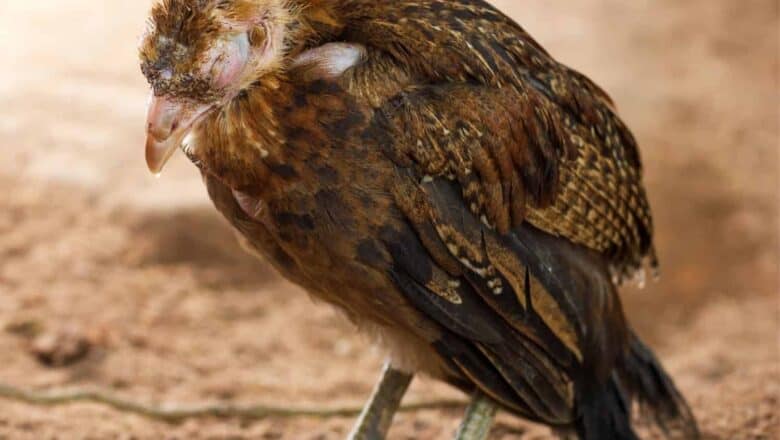
Cleaning your coop after coccidiosis isn’t straightforward. The parasite coccidia is very tough and resistant to most standard disinfectants. Some warm water and soap are just not going to cut it here, you need something stronger.
Before you clean, you should remove every last bit of bedding from the entire coop. More sure it’s completely bare. You’ll also want to burn this bedding as you run the risk of any animals, including wild birds, having access to it.
While coccidia is resistant to a lot of disinfectants, they aren’t to ammonia. Put one part ammonia into nine parts water, and you’ll have a highly effective solution that sanitizes your coop. Make sure you clean every surface that your chickens may have touched.
Once your ammonia and water solution has dried, then you can add bedding back to the coop. You’ll also want to check the feathers of your chickens around their vent to make sure no dried poop is sticking to them.
Prevention
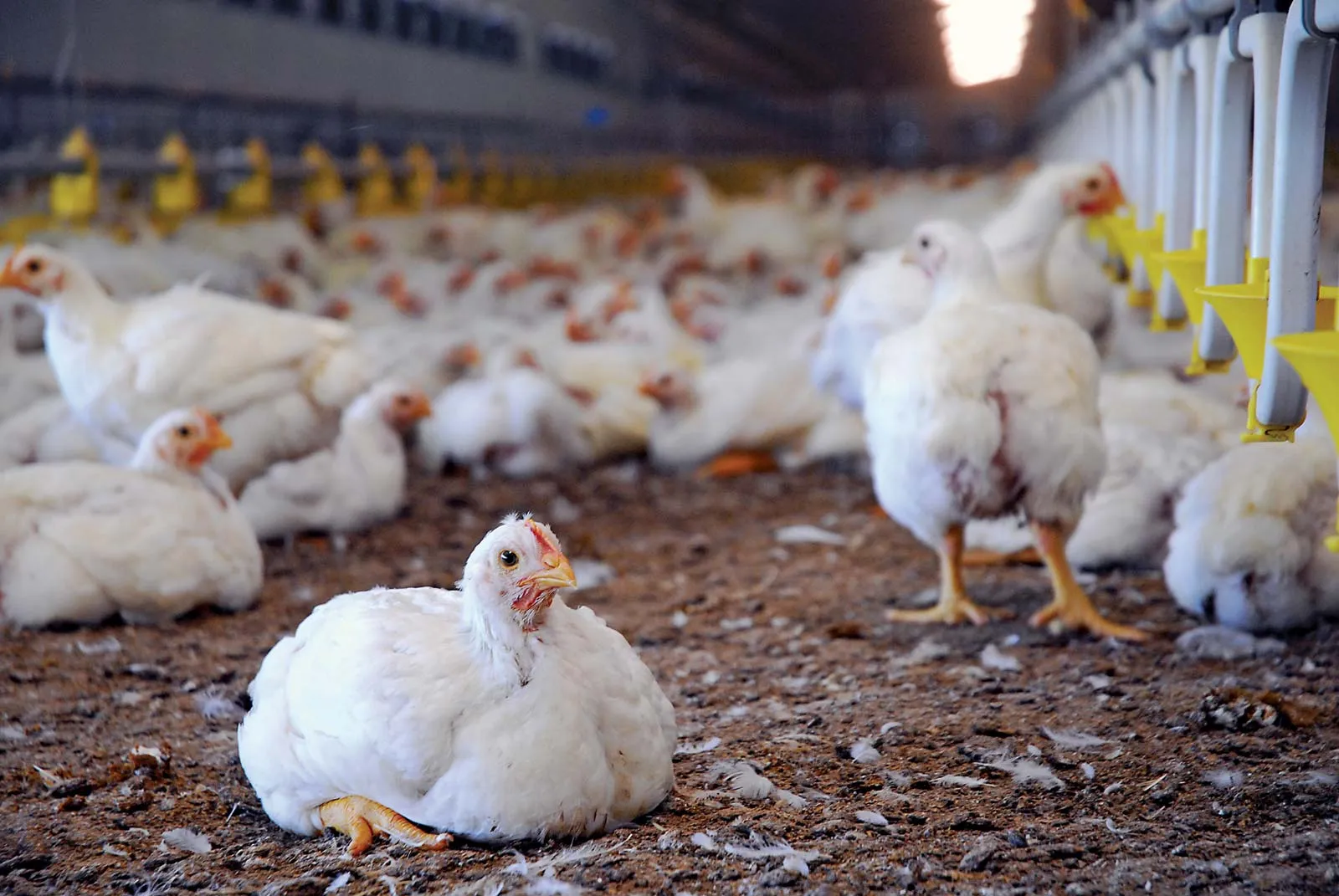
Thankfully there are plenty of things you can do to prevent your chickens from being infected and also prevent the spread if you do happen to have an infection. Let’s check out the steps that you should be taking.
- Vaccination – By far the best way you can prevent your chickens from getting coccidiosis is with a vaccination. It’s never too late (or too early) to vaccinate your chickens as they’ll be able to quickly develop immunity. However, any chickens that have been infected will develop an immunity to that specific strain of coccidia.
If you are breeding or hatching your own chickens, then it’s important to get them vaccinated as soon as they are born. If you have bought chickens from a breeder, there is a good chance they would have already been vaccinated.
- Cleaning – As mentioned in our section on treatment of the infection, you need to keep the coop as clean as possible. Keeping it clean can not only help to deter parasites, but it will ensure that any infection doesn’t spread quickly.
The most common way that a coccidiosis infection spreads is through contact with infected poop. If one of your chickens has bloody or runny poop, it needs to be cleaned immediately. You’ll also want to ensure that their water is fresh and clean.
- Medicated Starter Crumble – If your chickens are not, and will not, be vaccinated, then medicated starter crumble can be a good alternative. This will help to provide your chickens with a good level of immunity.
However, many people prefer the peace of mind of having their chickens vaccinated. It’s said that medicated starter feed can cancel out a vaccination, but there’s little evidence to back that up. What is true is that giving medicated feed to a vaccinated chicken is pointless.
- Quarantine New Chickens – Another important prevention measure is to quarantine any new chickens that you bring to the flock. Chickens can easily carry the parasite without even being sick, and then pass it on to other chickens.
It’s advised that you quarantine your chickens for at least 30 days. This way, you’ll be able to see if they develop any symptoms. You can then integrate them with the rest of the flock.
- Practice Biosecurity – It’s important to practice good biosecurity to limit the contact between your chickens and other birds. This can include deterring wild birds away from your coop, and there are various ways you can do this.
For example, wind chimes and statues of larger birds can scare wild birds away. Along with this, you can use the likes of scarers and bird spikes.
Also, if you happen to be around other birds at a show or exhibition, make sure you properly clean yourself before interacting with your chickens. The parasite can be carried on your clothing or footwear.
- Prevent Overcrowding – Parasites thrive in crowded environments, and they can easily transfer to other chickens if they are kept too close together. Make sure your chickens have plenty of space and a large enough coop for their needs.
What Can Coccidiosis Be Confused With?
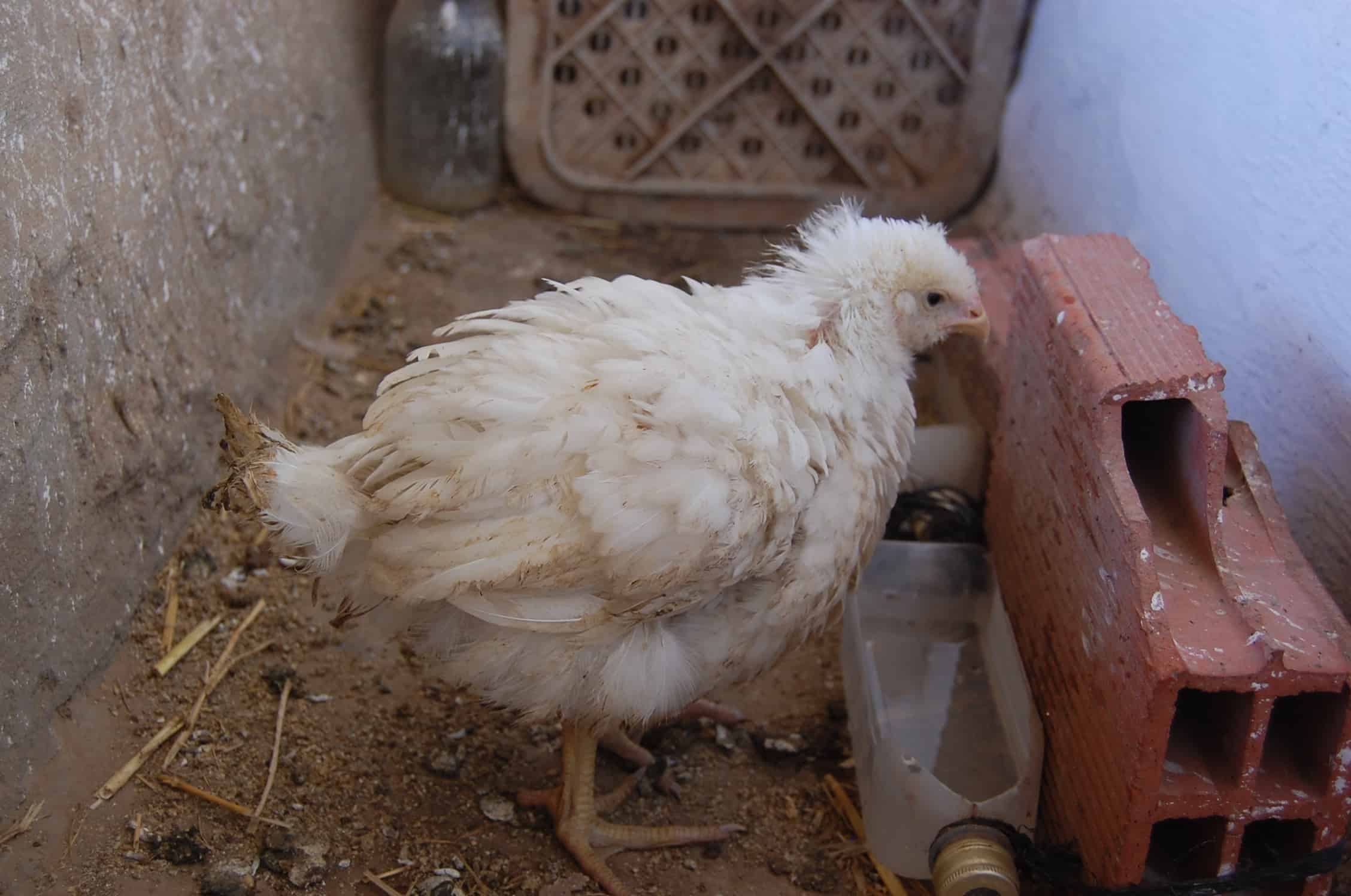
As we mentioned above, many of the symptoms that are associated with coccidiosis can also be a result of other health issues. Here we’ll look at what else could be wrong with your chicken if it’s not suffering from coccidiosis.
- Shedding of the Lining – Chickens regularly shed their intestinal lining and it is not harmful. When they do so, it will often be a bright red color that can easily be confused with blood.
If you’re not sure, then put the poop in some water. If the water turns pink, then it is blood. However, if it’s the intestinal lining, then it won’t wash away.
- Parasitic Worms – If they are struggling with worms then this will have almost exactly the same symptoms as coccidiosis. But there is one very easy way to check, as you’ll be able to see the worms in their poop.
- Necrotic Enteritis – This is another illness that can cause bloody poop. Caused by bacteria, necrotic enteritis results in an inflammation of the intestines and can rupture blood vessels. Without testing, it can be very hard to see any difference between this and coccidiosis.
- Algae Poisoning – Have your chickens had any access to stagnant water? If so, they may have consumed a lot of algae which can be dangerous to them in high quantities. This is toxic to chickens and can cause liver damage.
- Newcastle Disease – Here we have another serious illness but one that has different symptoms to coccidiosis. While they are likely to have blood in their poop, chickens with this viral disease will also have breathing and balance problems.
Added to those symptoms, their poop will often be green. Newcastle Disease is much more dangerous than coccidiosis and sometimes chickens can die before showing any symptoms at all.
- Vent Issues – There are several vent issues that can cause blood in poop, with the most serious being a prolapse, which is obvious to see. However, a chicken may have become injured during the egg-laying process or if pecked by other hens.
Most vent issues aren’t accompanied by other symptoms such as a loss of appetite, huddling, and lethargy. If blood in their poop is the only symptom they have, there’s a chance it will only be a minor issue.
Disposal of Dead Chickens
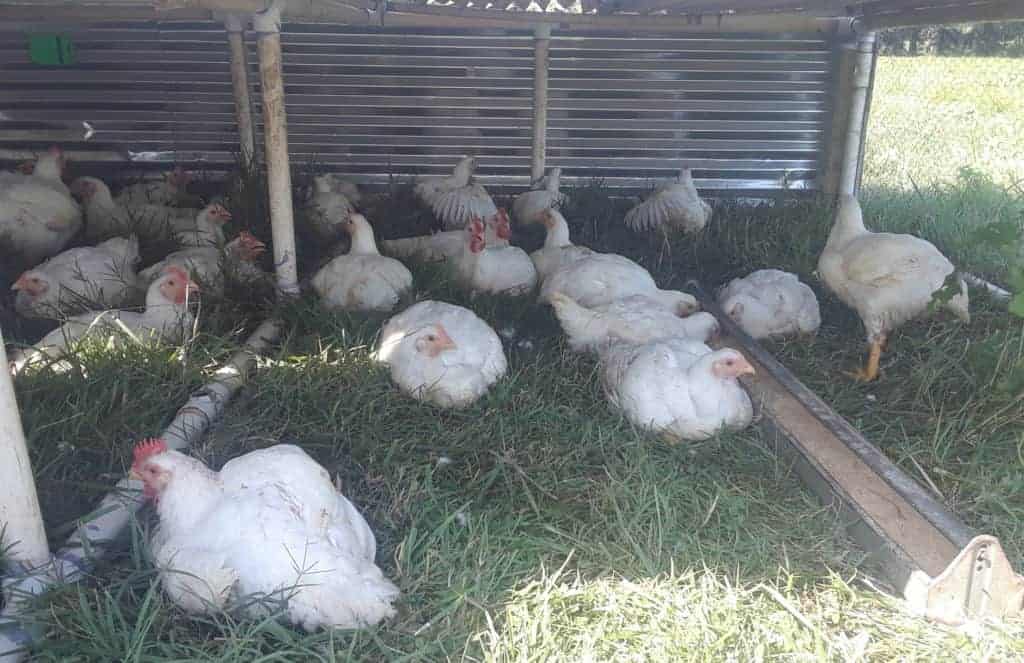
Sadly coccidiosis can be deadly and you may have the issue of needing to dispose of dead chickens, but how should you do it? The recommended method here is to cremate your chickens, as this will destroy the parasites inside of them.
You can do this with a fire pit, or any method that you think is suitable. While this is the preferred method, it’s important to note that it will create a terrible smell. It’s best to warn your close neighbors if you must do this.
If you don’t want to burn your chickens, then you can bury them. To do this, you’ll want to ensure that they are buried deep, to at least two feet. This prevents any predators from trying to dig into the soil to eat the chicken.
Conclusion
As we’ve seen, coccidiosis is a vicious illness that can make your chickens seriously unwell. If left untreated, fatalities are common and even those that survive may not fully recover. Thankfully medication is readily available and will quickly work to kill the parasites.
There are also many steps you can take to stop coccidiosis from ever coming back, with vaccination being the most effective. You’ll also want to keep on top of cleaning your coop and use an ammonia solution if you need to sanitize it.


